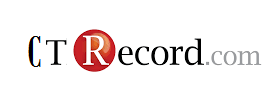Who Makes the Greatest Food Labels These Days?
by admin · May 26, 2025
Archives
Categories
Recent random
- Why a Hand Truck Trolley from Reflex Equip Is Essential for Moving Heavy Loads
- Air Cleaner Buying Guide: Understanding Features, Filtration, and Air Purifier Price
- Vela One: Homes That Feel Clean, Warm, and Balanced
- What Is An Infrared Light, and what is it Used For?
- Live Comfortably at Lentor Gardens Residences and Terra Hill
Recent Posts
- Why a Hand Truck Trolley from Reflex Equip Is Essential for Moving Heavy Loads
- Air Cleaner Buying Guide: Understanding Features, Filtration, and Air Purifier Price
- Vela One: Homes That Feel Clean, Warm, and Balanced
- What Is An Infrared Light, and what is it Used For?
- Live Comfortably at Lentor Gardens Residences and Terra Hill
